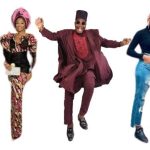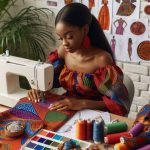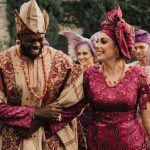In the last decade, Nigeria has undergone a cultural metamorphosis, fueled by the ever-present influence of social media. The youth, who make up more than 60% of the country’s population, are leading this charge. Nigerian youth culture has long been a blend of rich tradition and contemporary ideas, but the advent of social media has accelerated this fusion in ways previously unimaginable.
From fashion to language, activism to entrepreneurship, Nigerian youth have adopted social media as a tool for self-expression, advocacy, and innovation. This post dives deep into the current social media trends among Nigerian youths, highlighting the ways in which it shapes their culture, identity, and future.
1. The Rise of Digital Communities: Beyond Physical Boundaries
Nigerians are known for their communal culture. The concept of “family” in Nigeria extends beyond blood relations to include friends, neighbors, and even colleagues. Social media has tapped into this communal spirit by creating spaces where youths can form new communities that transcend geographical and cultural boundaries.
Twitter NG: The Digital Agbada
Twitter has arguably become one of the most influential platforms in Nigerian youth culture. Nigerian Twitter, often referred to as “Twitter NG,” is a space where youths gather to discuss everything from politics and social issues to music and pop culture. It is where slang like “Sapa” (a term for being broke) and “Japa” (a reference to emigrating from Nigeria) gain traction and become part of the national lexicon. Whether it’s through witty banter, heated debates, or the occasional social media “drag,” Twitter NG has become the digital agbada (a symbol of Nigerian cultural pride) where young Nigerians gather, both to showcase their humor and address pressing societal issues.
One of the most notable examples of Twitter NG’s influence was the EndSARS movement in 2020. What began as an online protest against police brutality grew into a nationwide demonstration. Twitter played a pivotal role in organizing protests, spreading awareness, and raising funds. This movement was a testament to the power of social media as a tool for change, and it showcased how Nigerian youths are using digital platforms not just for entertainment but for real-world impact.
Instagram: The Nigerian Celebrity Marketplace
Instagram is another platform where Nigerian youth culture thrives. Known for its visual appeal, Instagram serves as a marketplace for Nigerian celebrities, influencers, and budding entrepreneurs. Fashion designers, makeup artists, and musicians all use Instagram as a primary platform to showcase their work and connect with their audience.
In recent years, Instagram influencers have become key players in the Nigerian entertainment industry. These influencers, who range from fashionistas to comedians, use the platform to grow their brands and create a connection with their fans. Young Nigerians follow these influencers not just for entertainment, but for inspiration. The fashion, lifestyle, and luxury items displayed by influencers have sparked trends across the country, making Instagram the hub for all things aspirational in Nigerian youth culture.
Instagram has also evolved into a space for micro and macro influencers to monetize their content. Brands are increasingly working with influencers to push products and services, tapping into the massive audience these young Nigerians command. Fashion brands, in particular, have found a massive market on Instagram. From high-end designers like Orange Culture and Lisa Folawiyo to streetwear labels like Seun Kuti’s AFRIKAN LIBERATION MOVEMENT (ALM), Instagram has become the go-to space for marketing Nigerian fashion.
Additionally, Instagram Live has also taken off as a major trend among young Nigerians, especially post-COVID. Many creators and entrepreneurs host live sessions where they engage directly with their followers. From virtual concerts to live shopping events, Instagram Live has democratized access to celebrities and influencers, allowing youths to interact with them in real-time.
2. The Language of the Streets: Slangs, Memes, and Communication
If there’s one thing you can’t take away from Nigerian youth, it’s their creativity with language. The streets of Lagos, Abuja, Port Harcourt, and other cities are constantly birthing new slangs that infiltrate social media, becoming part of everyday conversations.
Slangs and Their Role in Identity
Language is one of the most significant markers of identity, and Nigerian youths have developed a language that is as diverse and dynamic as the country itself. Slangs like “Gbese” (trouble), “Lamba” (vibe or flow), “Pepper Dem” (to show off), and “E choke” (a term popularized by Davido, meaning overwhelming or intense) are just a few examples of how Nigerian youths create and spread culture through words. These slangs are not just confined to the streets; they migrate online, gaining wider visibility on platforms like Twitter, Instagram, and TikTok.
The rapid evolution of slang has added a new layer to youth identity, making it almost impossible to fully grasp Nigerian youth culture without understanding the language they speak. These words give insight into how Nigerian youths perceive their realities—whether it’s the excitement of living large (Pepper Dem) or the exasperation of financial hardship (Sapa). The use of these slangs transcends ethnic and social boundaries, reflecting a shared cultural consciousness that’s distinctly Nigerian.
Beyond slangs, Nigerian youth are also known for their unique ways of communicating humor and satire through memes. A good example is the viral “Lori Iro” meme, which mocks dishonest romantic promises. What began as a sermon by an evangelical pastor was quickly remixed and turned into a TikTok and Twitter sensation. This trend highlights the speed at which Nigerian youths can transform everyday moments into viral sensations, reflecting their wit and sharp observation of societal contradictions.
Memes as a Form of Expression
Memes have become one of the most important forms of digital expression in Nigeria. Often drawing from the country’s unique sense of humor and everyday experiences, Nigerian memes capture the struggles and joys of being young in Nigeria. From “Sapa” memes that poke fun at the difficulties of being broke to funny skits about Nigerian parents, these memes offer a moment of collective laughter and relief in a country where young people face economic and social challenges.
Nigerian comedians such as Mr. Macaroni, Taaooma, and Broda Shaggi have also leveraged social media, particularly Instagram and YouTube, to build huge audiences through skits that resonate with the everyday experiences of Nigerians. These skits often serve as an exaggerated reflection of real-life struggles and triumphs, blending humor with social commentary.
3. Music and Dance Trends: The Global Spread of Afrobeats
One of the most recognizable elements of Nigerian youth culture today is music, especially the rise of Afrobeats. This genre has not only captivated Nigerian audiences but has spread its influence across the globe. Artists like Burna Boy, Wizkid, Davido, and Rema have become international sensations, with their songs playing in clubs, parties, and festivals worldwide.
The TikTok Dance Revolution
TikTok has played a pivotal role in globalizing Nigerian music. The platform has enabled users to create viral dance challenges to popular Afrobeats songs. From Burna Boy’s “Last Last” to Rema’s “Calm Down,” Nigerian songs are dominating the charts not only because of their catchy beats but also due to the viral nature of TikTok dance challenges.
Take the “Unavailable” challenge, for example. The song by Davido spawned thousands of user-generated dance videos across TikTok and Instagram. In a country where dance has always been a key aspect of cultural expression, social media platforms have amplified the reach of Nigerian dance styles such as Zanku, Shaku Shaku, and more recently, legwork. These dances have become symbolic of Nigerian resilience, joy, and creative expression.
DJs and the Role of Social Media
Beyond the artists, Nigerian DJs are also taking to social media to create unique experiences for audiences. During the COVID-19 lockdown, DJs like DJ Cuppy and DJ Neptune held virtual parties that attracted thousands of attendees from all over the world. Instagram and YouTube became the new nightclubs, with people attending from the comfort of their homes. These online parties, accompanied by live commentary from participants, added a new dimension to social interaction and youth culture in Nigeria.
4. Social Media as a Tool for Activism
Nigeria is no stranger to social and political challenges, and its youths are at the forefront of addressing these issues. In recent years, social media has become a tool for activism, providing Nigerian youths with a platform to raise awareness about various issues and demand change.
#EndSARS: The Power of Collective Action
The #EndSARS movement was a pivotal moment in Nigerian history, demonstrating the power of youth-led digital activism. What started as a hashtag calling for the disbandment of the Special Anti-Robbery Squad (SARS), a notorious unit of the Nigerian police force, turned into a national movement, largely organized on social media. Twitter and Instagram played key roles in mobilizing protesters, sharing real-time updates, and raising international awareness.
The movement also highlighted how social media can be a double-edged sword in Nigeria. While it gave youths a voice and a platform, the Nigerian government eventually cracked down on digital spaces, even going as far as banning Twitter temporarily in 2021. This was a wake-up call for many Nigerian youths about the fragility of digital freedom, but it also showcased their resilience and determination to use every tool at their disposal to fight for a better future.
Beyond #EndSARS, other forms of activism have also found footing on social media. For instance, during the #BringBackOurGirls campaign in 2014, social media played a critical role in drawing international attention to the kidnapping of over 200 schoolgirls by Boko Haram. Social media platforms like Twitter, Instagram, and Facebook became channels for global outrage, and the hashtag #BringBackOurGirls reached millions of people, including celebrities and political figures worldwide. This digital activism pressured the Nigerian government to take more decisive action, and it demonstrated the ability of social media to amplify the voices of the oppressed.
Feminist Movements and Gender Advocacy
In addition to political protests, Nigerian youths are also using social media to advocate for gender equality and women’s rights. Movements like the Feminist Coalition have gained traction, especially during the #EndSARS protests, where women played key roles in organizing and providing logistical support. The coalition, initially a small group of women working to empower young Nigerian women, used social media to raise awareness and mobilize funds for protesters during the nationwide demonstrations.
This has further extended to online spaces where young Nigerian women are now more vocal about issues such as sexual harassment, consent, and gender-based violence. The #MeToo movement, although more pronounced in the West, has found its own resonance in Nigeria through hashtags like #ArewaMeToo, which was primarily led by Northern Nigerian women exposing issues of sexual abuse in the region.
Instagram and Twitter have become important platforms for these conversations, with influencers and activists constantly discussing issues that would have been silenced in previous generations. These platforms are offering young Nigerians the space to challenge cultural norms and demand more progressive attitudes towards gender and equality.
5. Entrepreneurship and the Hustle Culture
In Nigeria, the word “hustle” carries deep significance. It represents the daily grind, the quest to make ends meet, and the pursuit of success in a country where opportunities are often limited. Nigerian youths have embraced the “hustle” culture, and social media has become an essential tool in their entrepreneurial journeys.
Social Commerce: Turning Likes into Cash
Instagram, Facebook, and WhatsApp have become crucial platforms for young entrepreneurs in Nigeria. From selling fashion items to offering digital marketing services, Nigerian youths are leveraging these platforms to grow their businesses. WhatsApp Business, in particular, has become an essential tool for small-scale entrepreneurs who use it to communicate with customers, showcase their products, and complete transactions.
In the fashion industry, young designers such as Andrea Iyamah, Mowalola, and Tobi Martins have used platforms like Instagram to gain international recognition. They leverage social media for direct-to-consumer sales, using stunning visuals to appeal to global markets. The rise of digital platforms has also allowed young fashion entrepreneurs to bypass traditional brick-and-mortar setups, making it easier for them to reach customers.
Food business is another area where young Nigerians have found success. Instagram pages showcasing delicious, mouth-watering meals attract customers who make orders via Direct Messages (DMs) or WhatsApp. This kind of business model has seen an explosion in the food and catering industries, with youths turning simple ideas into thriving food brands.
Influencers and celebrities have also hopped on the entrepreneurial wave. Social media personalities such as Tacha Akide and Nengi Hampson, both reality TV stars, have launched beauty lines and fashion brands, turning their massive social media followings into profitable ventures.
The Role of Fintech in Empowering Youth Entrepreneurs
Beyond social media-based entrepreneurship, Nigerian youths are driving innovation in the fintech space. The country’s tech scene, often called “Silicon Lagoon,” is booming, and youths are at the forefront of this transformation. Apps like PiggyVest, Flutterwave, and Paystack were either founded by or heavily promoted by young Nigerians. These apps have made it easier for youths to save, invest, and transact money, all while embracing the digital economy. Social media has played a role in popularizing these platforms, with influencers and users alike sharing their experiences and recommending them to others.
These financial platforms have also given rise to a new culture of financial literacy among young Nigerians, many of whom are becoming more educated about saving and investment opportunities. This trend has led to a wave of entrepreneurship and startup culture, with young Nigerians constantly seeking new ways to monetize their skills and ideas.
The Gig Economy: Freelancers and Remote Work
Another significant shift in youth culture has been the rise of the gig economy. Social media platforms like LinkedIn and Twitter are increasingly being used by freelancers and remote workers to find job opportunities. With platforms like Upwork and Fiverr gaining traction, many Nigerian youths are turning to freelance work to earn income.
Graphic designers, writers, software developers, and social media managers have built their personal brands on social media, showcasing their work and attracting international clients. The growth of this gig economy has provided Nigerian youths with an alternative path to success, particularly for those who struggle to find traditional employment in a country where job opportunities are often scarce.
6. Mental Health and the Culture of Transparency
In a society where mental health is often stigmatized, social media has opened up conversations around the importance of mental well-being. Nigerian youths are using platforms like Twitter, Instagram, and even Clubhouse to discuss issues like depression, anxiety, and stress. The COVID-19 pandemic exacerbated these conversations, with many young Nigerians struggling with the effects of isolation, unemployment, and financial uncertainty.
Therapy on the Timeline
Therapists and mental health advocates have also taken to social media, offering advice, sharing resources, and encouraging young people to prioritize their mental health. This shift towards openness and transparency is a marked departure from traditional Nigerian society, where mental health issues are often swept under the rug. It represents a new cultural trend where youths are challenging societal norms and creating a safe space for dialogue and healing.
Platforms like Instagram Live and Twitter Spaces have become venues for conversations about mental health, with influencers, advocates, and everyday people discussing topics that were once considered taboo. Mental health advocacy organizations, such as Mentally Aware Nigeria Initiative (MANI), have also leveraged social media to spread awareness and provide resources to those struggling with mental health issues.
Moreover, the culture of transparency in Nigeria is growing. Social media has made it more acceptable for youths to talk openly about their struggles, whether they are related to mental health, relationships, or finances. This openness has fostered a sense of community, allowing young Nigerians to support one another during tough times.
7. The Role of Social Media in Shaping Nigerian Pop Culture
Social media is not only a tool for activism or entrepreneurship; it is a vital space for the development of pop culture. Nigerian youths use platforms like YouTube, Twitter, and TikTok to influence music, fashion, movies, and more. From pushing local music genres like Afrobeats, Alte (alternative music), and Afro-fusion to promoting Nollywood movies, youths are actively shaping Nigerian pop culture through their online interactions.
Skits and comedy are significant parts of this trend. Comedians like Broda Shaggi, Lasisi Elenu, and Taaooma have made names for themselves through social media skits, providing entertainment that reflects the humorous side of Nigerian life. These skits often touch on real-life struggles, like power outages or the complexities of Nigerian family dynamics, offering a blend of humor and social commentary.
Additionally, platforms like YouTube have created a space for young filmmakers, musicians, and content creators to showcase their talents. Creators like Fisayo Fosudo and Dimma Umeh have built huge followings by sharing tech reviews and beauty tutorials, respectively, demonstrating that Nigerian youths can successfully carve out niches in various industries through social media.
The Future of Nigerian Youth Culture and Social Media
As we look ahead, it’s clear that social media will continue to shape Nigerian youth culture in profound ways. With every new platform, trend, and movement, young Nigerians are redefining what it means to be creative, resilient, and connected. Whether they are starting businesses, advocating for change, or simply sharing memes that reflect the unique Nigerian humor, the youth are making their mark both locally and globally.
The future of Nigerian youth culture lies in their ability to adapt to the ever-changing digital landscape, while staying rooted in the traditions and values that define them. Social media is more than just a tool for these youths—it is a reflection of their hopes, dreams, and collective consciousness. As the country continues to evolve, one thing is certain: Nigerian youths will remain at the forefront of this digital revolution, constantly pushing boundaries and shaping the future of culture both within Nigeria and beyond.







Leave a Reply